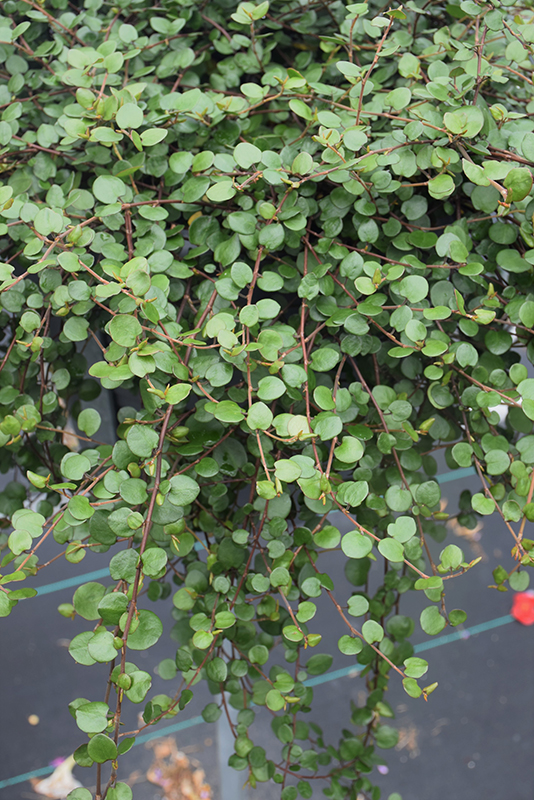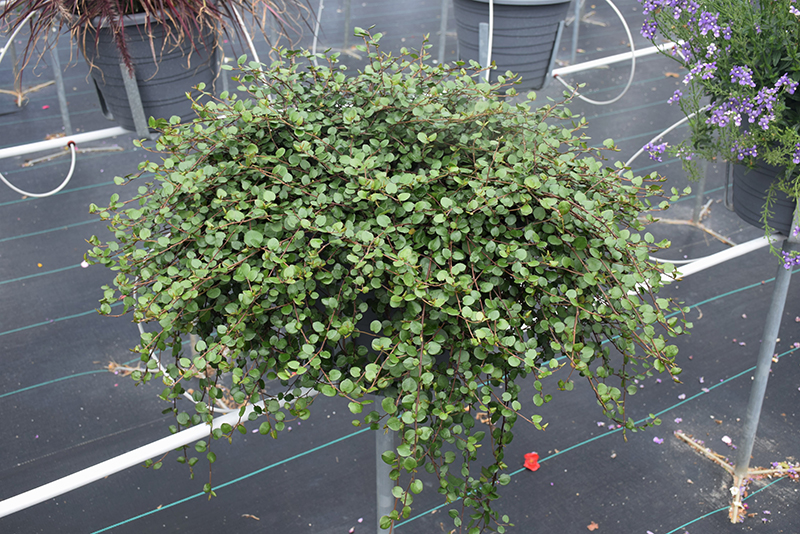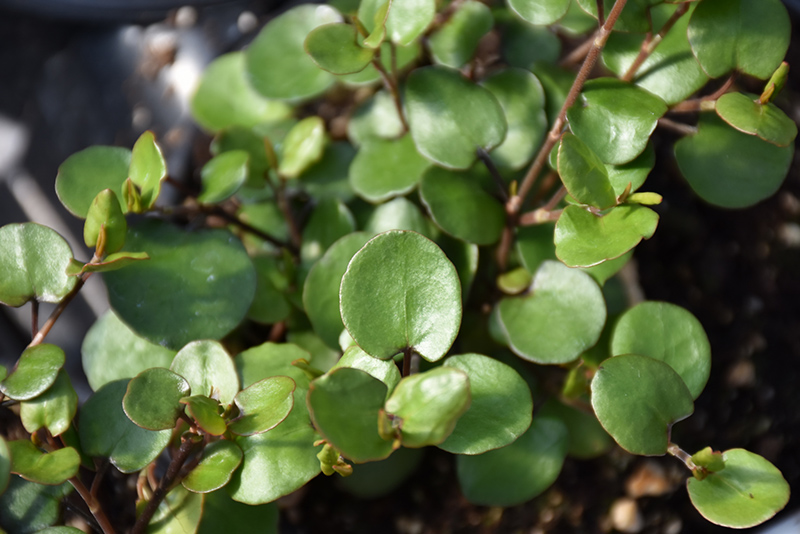Big Leaf Creeping Wire Vine
Muehlenbeckia complexa 'Big Leaf'
Height: 10 feet
Spread: 24 inches
Sunlight:
![]()
![]()
Hardiness Zone: 7b
Brand: Proven Winners
Description:
An unusual creeper with a fine texture, producing a spreading mat of wiry stems, clothed in tiny rounded leaves that are dark glossy green; flowers are not showy; great in the rock garden, as a small groundcover, or spilling from window boxes
Ornamental Features
Big Leaf Creeping Wire Vine is primarily valued in the landscape or garden for its broadly spreading habit of growth. It has attractive forest green evergreen foliage. The small glossy round leaves are highly ornamental and remain forest green throughout the winter.
Landscape Attributes
Big Leaf Creeping Wire Vine is a dense multi-stemmed evergreen woody vine with a twining and trailing habit of growth. It lends an extremely fine and delicate texture to the landscape composition which can make it a great accent feature on this basis alone.
This woody vine will require occasional maintenance and upkeep, and can be pruned at anytime. Gardeners should be aware of the following characteristic(s) that may warrant special consideration;
- Spreading
Big Leaf Creeping Wire Vine is recommended for the following landscape applications;
- Accent
- Hedges/Screening
- General Garden Use
- Groundcover
- Topiary
- Container Planting
Planting & Growing
Big Leaf Creeping Wire Vine will grow to be about 10 feet tall at maturity, with a spread of 24 inches. As a climbing vine, it tends to be leggy near the base and should be underplanted with low-growing facer plants. It should be planted near a fence, trellis or other landscape structure where it can be trained to grow upwards on it, or allowed to trail off a retaining wall or slope. It grows at a fast rate, and under ideal conditions can be expected to live for approximately 30 years.
This woody vine does best in full sun to partial shade. It does best in average to evenly moist conditions, but will not tolerate standing water. It is not particular as to soil type or pH, and is able to handle environmental salt. It is somewhat tolerant of urban pollution. This is a selected variety of a species not originally from North America.
Big Leaf Creeping Wire Vine makes a fine choice for the outdoor landscape, but it is also well-suited for use in outdoor pots and containers. Because of its spreading habit of growth, it is ideally suited for use as a 'spiller' in the 'spiller-thriller-filler' container combination; plant it near the edges where it can spill gracefully over the pot. It is even sizeable enough that it can be grown alone in a suitable container. Note that when grown in a container, it may not perform exactly as indicated on the tag - this is to be expected. Also note that when growing plants in outdoor containers and baskets, they may require more frequent waterings than they would in the yard or garden. Be aware that in our climate, most plants cannot be expected to survive the winter if left in containers outdoors, and this plant is no exception. Contact our experts for more information on how to protect it over the winter months.



